‘We’re all meant to be outside and living off the land – I think we forget that sometimes’
Claire Moses and Geneva Abdul meets the Brits who are out of work and have become a dab hand at picking fruit and vegetables on farms across the UK
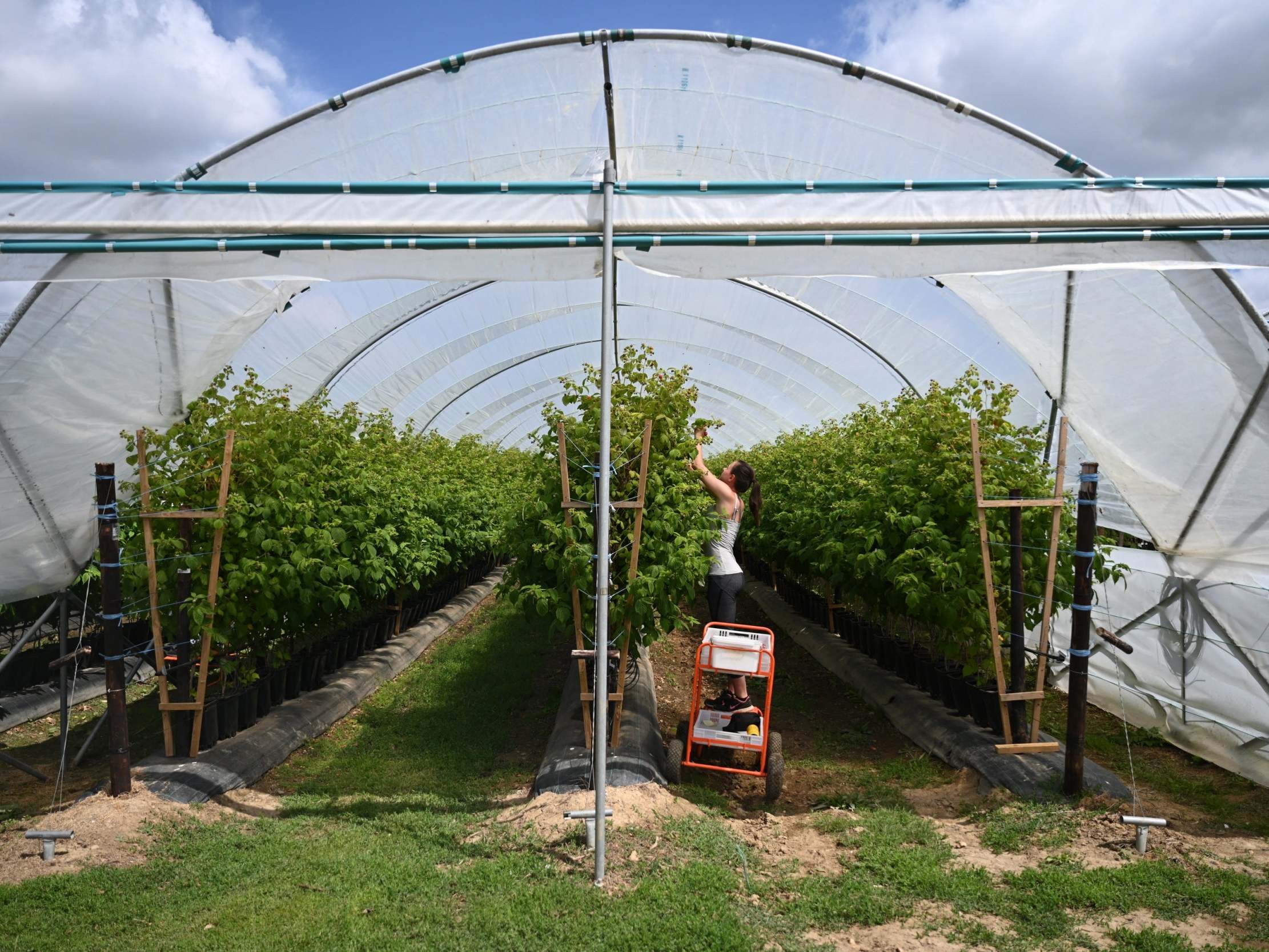
Your support helps us to tell the story
From reproductive rights to climate change to Big Tech, The Independent is on the ground when the story is developing. Whether it's investigating the financials of Elon Musk's pro-Trump PAC or producing our latest documentary, 'The A Word', which shines a light on the American women fighting for reproductive rights, we know how important it is to parse out the facts from the messaging.
At such a critical moment in US history, we need reporters on the ground. Your donation allows us to keep sending journalists to speak to both sides of the story.
The Independent is trusted by Americans across the entire political spectrum. And unlike many other quality news outlets, we choose not to lock Americans out of our reporting and analysis with paywalls. We believe quality journalism should be available to everyone, paid for by those who can afford it.
Your support makes all the difference.If this were any other year, Ella Chandler would be playing cricket almost every day. Zak Oyrzynski would be looking for a job as a chef in London. Beth Blease, a personal trainer, would be helping her clients get into shape for the summer. Sam Richards would be behind a desk, working in sales.
But in this pandemic year, they can be found in fields across the UK, doing something they probably would not have imagined a few months ago: working as farm labourers, picking berries. And pretty much enjoying it.
“It’s been really fun, but it’s been tiring and hard work,” says Chandler, a professional cricket player for a team in New Zealand whose season was cut short. On a recent day, she says, she picked almost 256kg of strawberries in about five hours. “It’s quite satisfying,” she says.
She had seen on the news that pickers were needed on farms because of an expected labour shortage and says she decided to apply to work on one near her home in Surrey.
Besides the chance to make some – though not a lot of – money, the pickers says, it was a good way to meet and talk to people while the country was on lockdown, and prove to themselves they could do something unexpected.
“At least I did something,” says Oyrzynski, who picks strawberries, too, at the farm where Chandler works. “I didn’t sit here and do nothing and be a couch potato. I’m proud of myself for doing that.”
The job isn’t glamorous, and the work is hard. A workday starts at 7am, and the income can vary person by person.
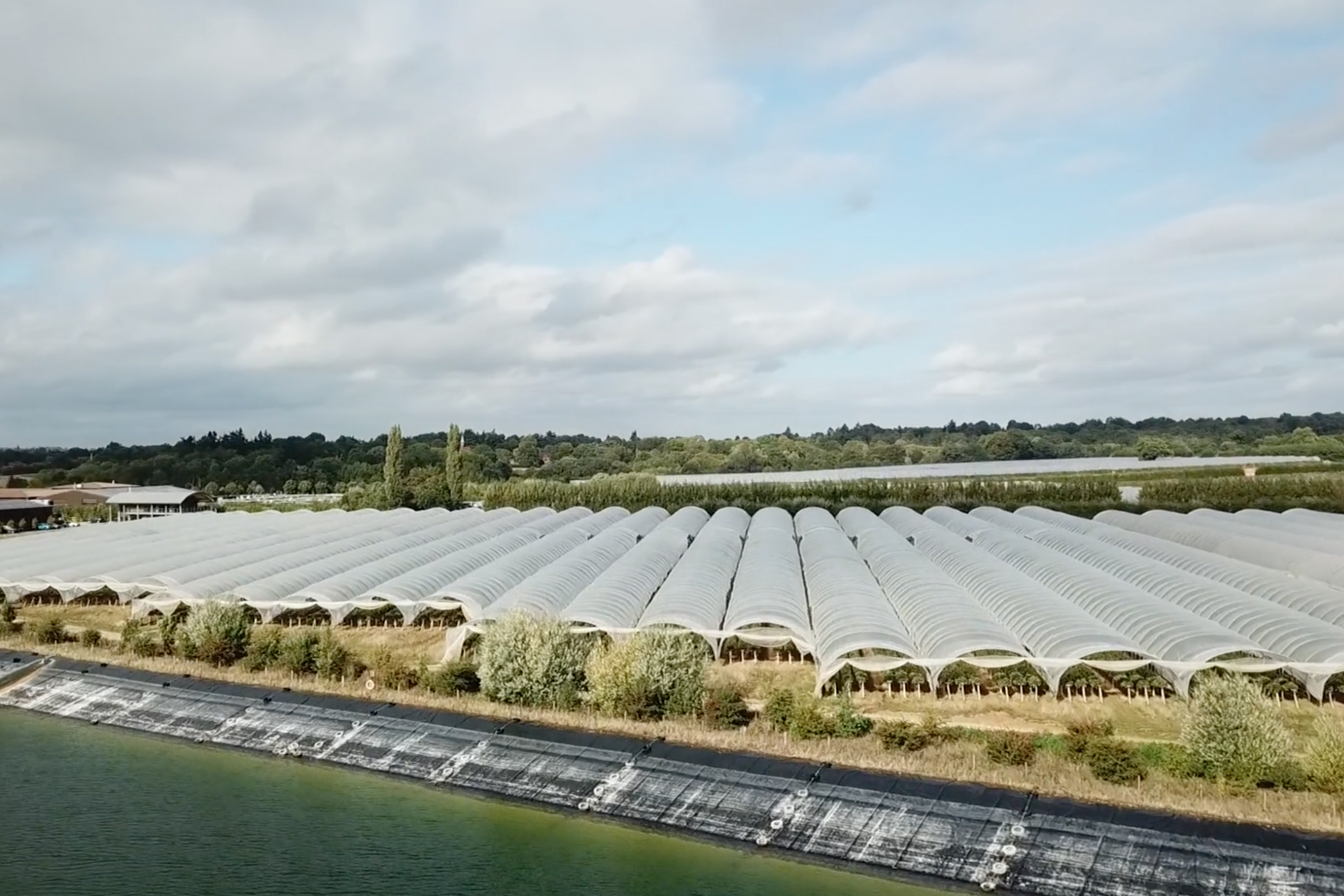
“People say you can make a lot of money,” Oyrzynski says, “but it’s down to the picker.” He says the workers at the farm are paid minimum wage – £8.72 an hour – but could earn more based on how much fruit they picked.
At Hall Hunter, the company that runs the farm, the average weekly pay in 2019 was £414, according to the company’s website.
“A couple of young people dropped out because the pay was not what they expected,” Oyrzynski says. And while the job started off fun, he says, it was also strict, with rules about how to behave. (Someone was written up for throwing an orange peel in a bush, he said.)
“It’s not the ideal job. It’s not something I would always do,” Oyrzynski says, but “it kept me busy, and it’s educating me”.
Fruit picking in Britain is traditionally done by seasonal workers from eastern Europe. Overall, 70,000 to 90,000 seasonal workers are needed to pick all the fruit and vegetables that grow in the country.
I think going forward I want to work in the outdoors. I’ve just decided now that I don’t actually need that much to be happy. Being outdoors is more than enough
Because of travel restrictions to curb the spread of the coronavirus, many of those workers haven’t been able to make the trip, have been delayed or have chosen not to come. By the time the pandemic hit Europe, most of the crops had been planted.
As a result of the looming labour shortage, the government started a “Pick for Britain” campaign in April to attract British workers. Prince Charles released a video in which he said the country needed “pickers who are stickers”.
Among those who signed up was Blease, a self-employed personal trainer who was unable to find work because of the lockdown. She works nine-hour shifts picking and packing strawberries and asparagus at Claremont Farm in northern England for minimum wage.
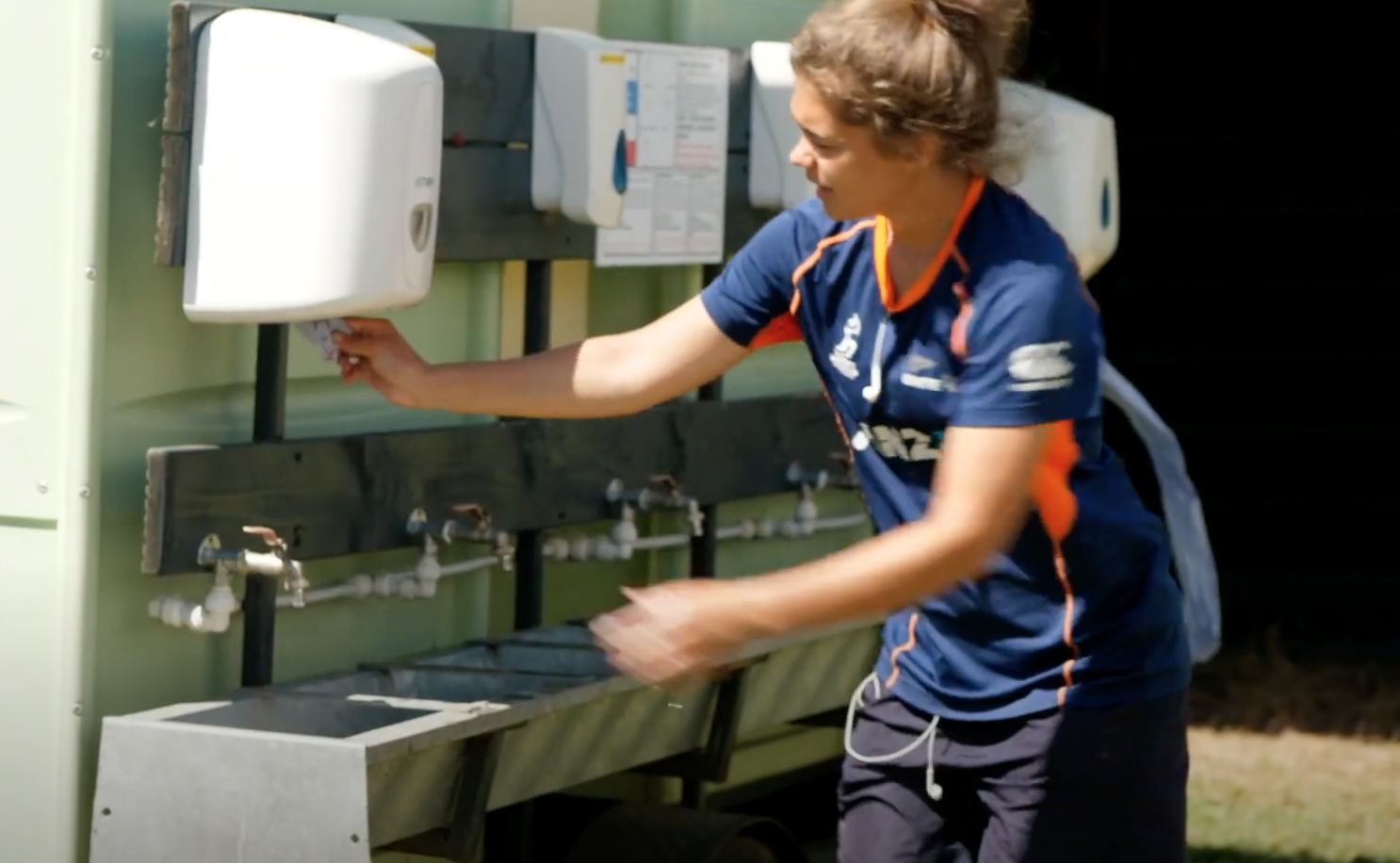
The work is rewarding beyond the pay, Blease says.
“We’re all meant to be outside and growing our own crops and living off the land, and I think we forget that sometimes,” she says. When the pandemic eases, she adds, she hopes to own a farm herself where individuals suffering from anxiety, depression or eating disorders can do the same work.
Richards also works at Claremont Farm after losing her job as an account manager for a beer company during the pandemic.
“It’s the hardest I’ve ever worked, for the littlest money I’ve ever made, but it’s the happiest I’ve ever been – it’s bizarre,” Richards says.
“I think going forward I want to work in the outdoors,” she says. “I’ve just decided now that I don’t actually need that much to be happy. Being outdoors is more than enough.”
Farmers say they have been pleasantly surprised by the amount of interest in these jobs. They were afraid Britons would stay away from jobs usually performed by overseas workers.
But the placement of workers has its challenges. Desk work this is not: there is reaching, twisting and bending, and the need for good eye-hand coordination and fine motor skills (to avoid tearing the plant when picking a delicate strawberry).
Four-fifths of the people who initially expressed interest drop out before moving to the next stage, such as an interview, according to HOPS Labour Solutions, a recruiter for farm work. Some realised that manual labour was not for them, or their job furlough ended, or the contracts offered by farms were too long.
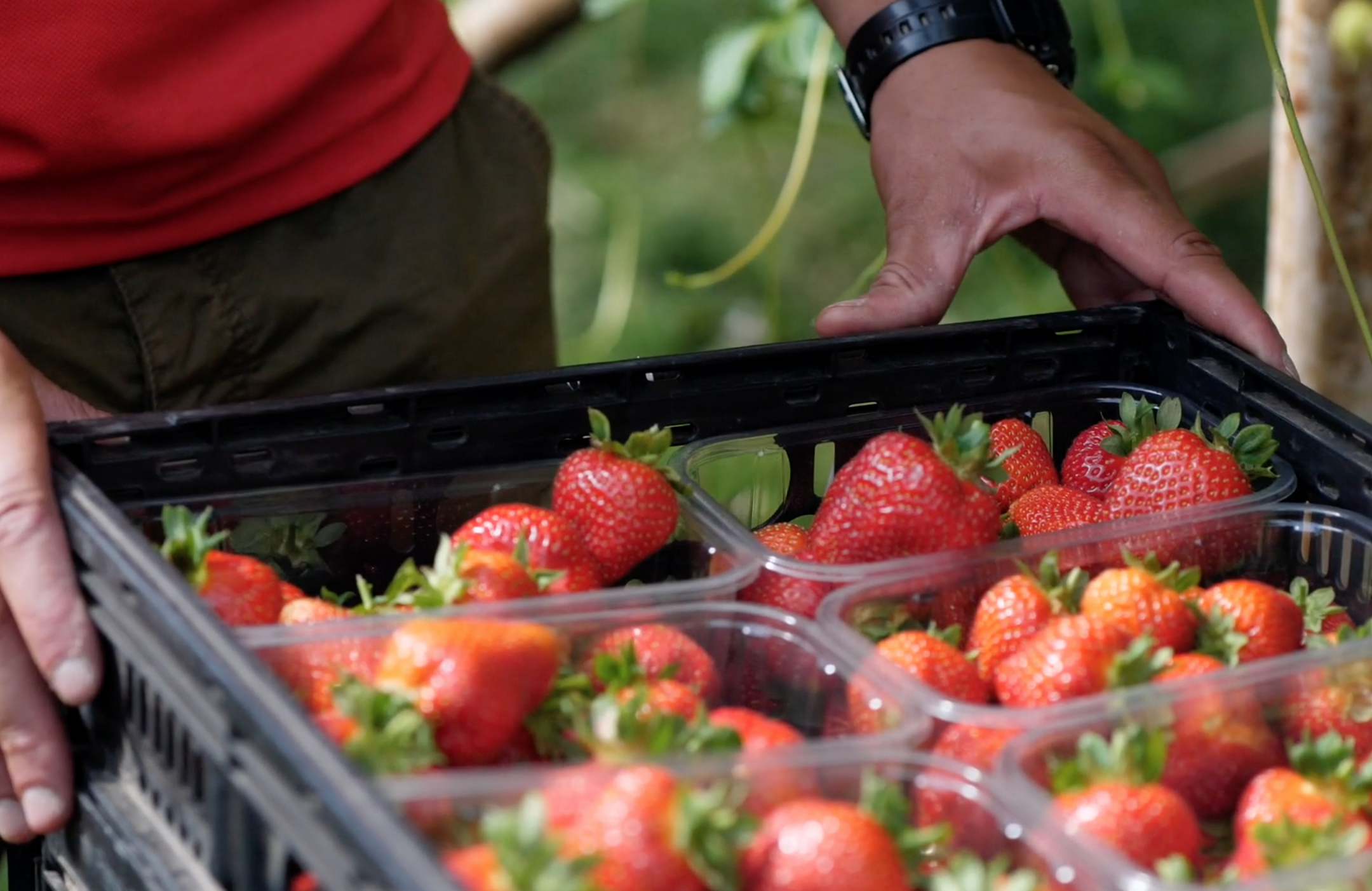
“Due to the uncertainty of the pandemic, many UK workers are unable to commit to months of work,” says Cheryl Liddle, a spokeswoman for HOPS
“It is a massive, massive challenge,” says Tom Martin, who used to live in London selling film rights but joined his family’s farm in Cambridgeshire five years ago. “I hear about people who take on 10 people and at the end of the week they only have three left.”
For farmers, hiring Britons without any fruit-picking experience comes with challenges, and productivity needs to be high.
It’s the hardest I’ve ever worked, for the littlest money I’ve ever made, but it’s the happiest I’ve ever been – it’s bizarre
Mike Ashby knows this firsthand. He normally hires seasonal workers from Romania to pick his farm’s asparagus, wheat, barley and more. This year, not enough could make it, so he hired “eight English workers I wouldn’t normally have”.
“English workers need more training, and need a bit more ongoing training,” he says.
Time spent training is less time doing productive work. “A new worker is 10 to 30 per cent more expensive,” says Ali Capper, of the Horticulture and Potatoes Board for the National Farmers Union of England and Wales. “It takes about three to four weeks to get into a rhythm.”
“Experienced staff from Europe are skilled and quick,” concludes Charmay Prout, managing director of Flavourfresh, a grower of produce in northwest England that has 27 British workers on its crews, compared with 10 last year.
Some in the industry are looking at this summer as a warning sign. The question of whether seasonal workers would continue coming to Britain each spring has been on the minds of farmers and growers since the country voted to leave the European Union in 2016. Rules governing travel from the European Union to Britain, due to take effect in 2021, have not been completed.
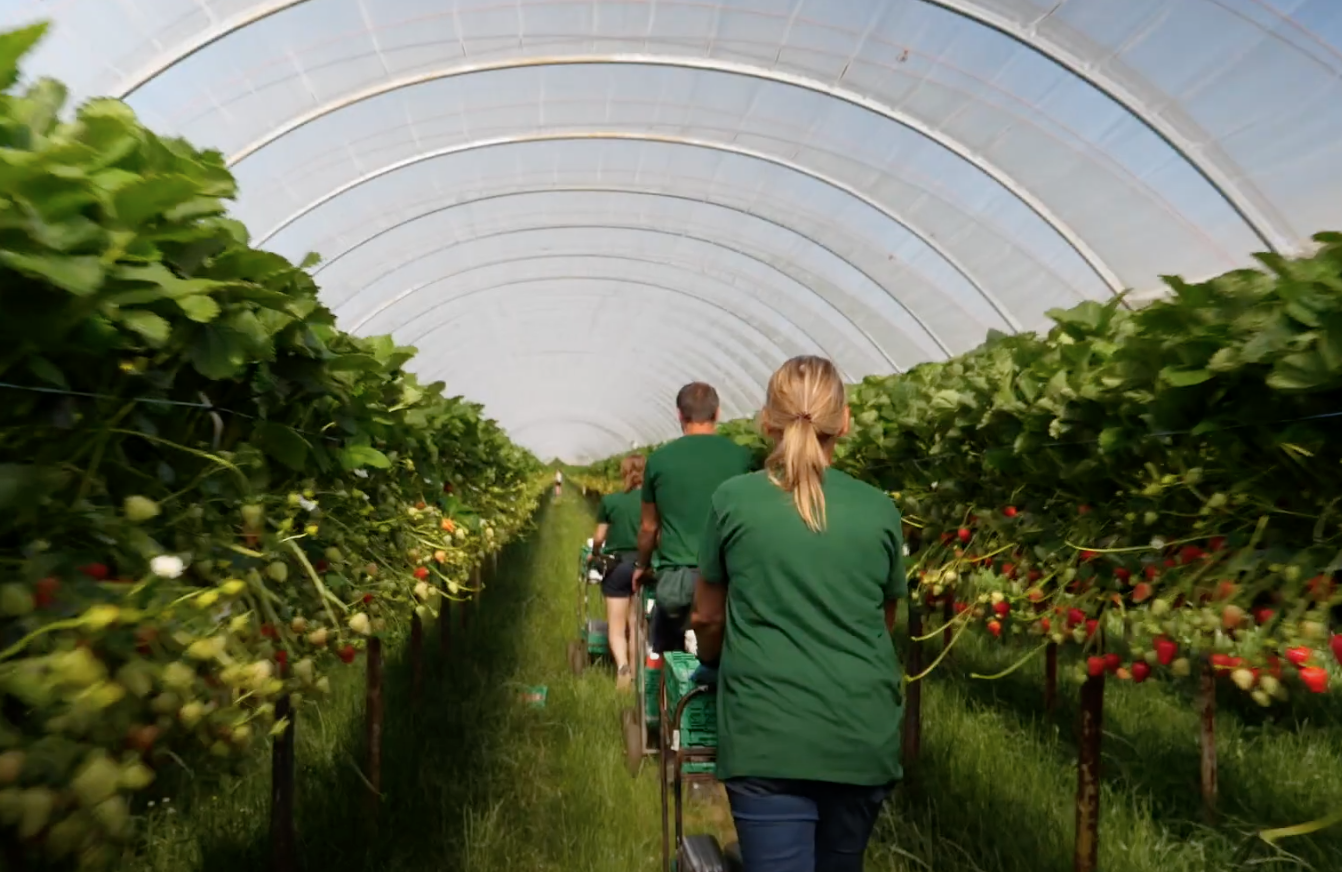
“This is what would’ve happened with Brexit without a proper plan. It’s exactly happening now,” says Deepak Ravindran, a co-founder of Oddbox, a company that delivers boxes of fresh produce to about 50,000 customers in London. “It’s kind of a warning sign.”
With lockdowns easing across the continent, and Britain’s announcement that seasonal workers wouldn’t be subject to a 14-day quarantine, farmers are hoping that more workers from Europe will still be able to come over for part of the season.
Despite the need, finding a job as a picker isn’t necessarily easy. Some hopefuls are turning to Facebook groups where they crowdsource jobs as they wait for responses and news on potential picking work.
Jonty Stephens, an actor who lost his income when his national tour ended prematurely because of the lockdown, is one of the people waiting to see if he’s needed in the fields.
“It’s a worrying time,” he says. “We’re trying to do something proactive.”
After Stephens, who is in his fifties, applied for a job in April, the farm told him that it would get back to him, but he hadn’t heard anything yet.
“We’re just waiting now,” he says. “We just have to wait and see.”
© The New York Times
Join our commenting forum
Join thought-provoking conversations, follow other Independent readers and see their replies
Comments